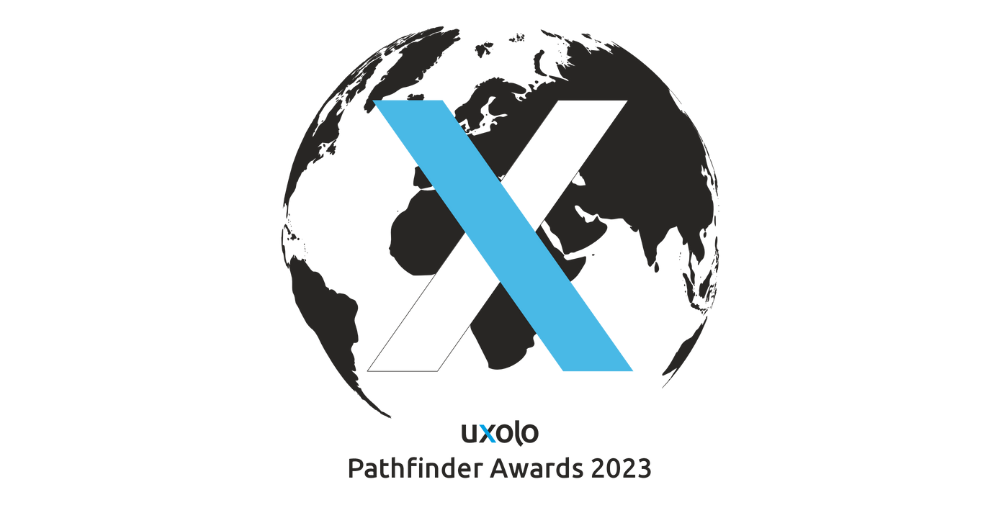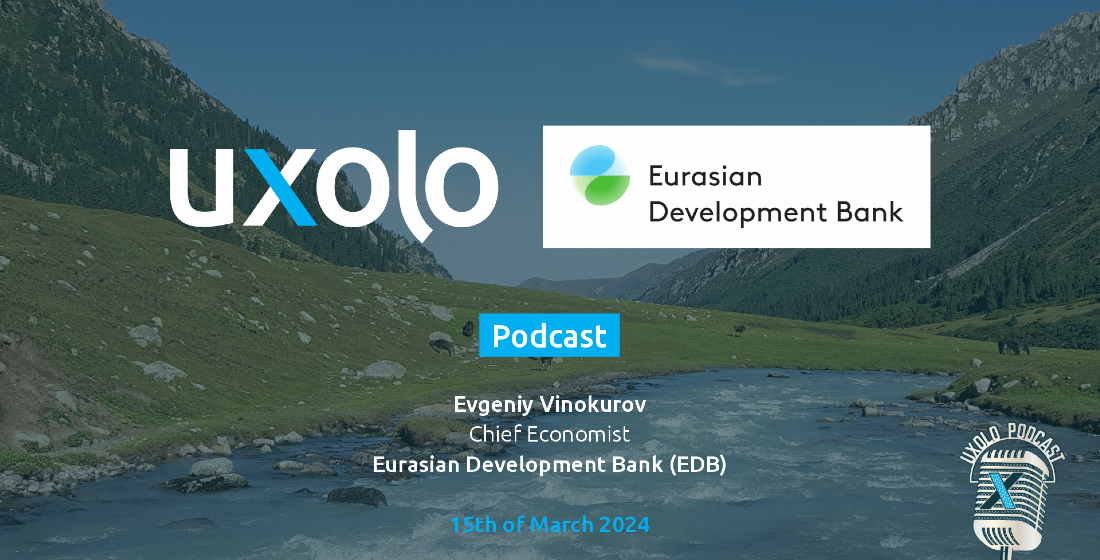Uxolo Pathfinder Awards 2023: A tale of two climates
Against the backdrop of an increasingly risky economic climate and growing demand from borrowers, the development finance sector continues to push the boundaries on projects and fundraising to offset the direct and indirect dangers posed by climate change.

The global development finance market produced considerable innovation in 2023 – both on the product and fundraising sides – despite, and perhaps because of, the growing demands placed on development banks against a backdrop of increased global risk and economic headwinds.
The key debut fundraising innovation was AfDB’s hybrid capital deal, a template the World Bank/IBRD is expected to follow this year. But there were other major fundraisings – the SDG Loan Fund and MCPP III – that pushed the envelope on scale, generating some much-needed blended finance volume and innovation.
Energy transition-linked projects featured highly again in the 2023 awards entries – with the Stans, an engine of DFI-backed renewables financings in recent years, producing another pathfinder award, this time for ACWA Power in Uzbekistan. And on the solar side, the Mendubim solar deal in Brazil took the honours, with an innovative and highly flexible sponsor-friendly financing template.
ACEN’s Monsoon Wind deal in Laos, a first for the country and the first cross-border wind deal in Asia, was also a very competitive contender for a renewables award. But it was pipped by ACWA because of its degree of complexity, which although a major and necessary achievement to get the deal done, is one that may prove difficult for future Laos projects to easily replicate.
Along with energy transition, environmental conservation linked to debt-for nature swaps produced two key financings this year – Ecuador’s Galapagos deal and the $500 million Gabon blue bond issue. The Gabon deal had the distinction of being the first debt-for-nature swap in Africa, but the cost-of-debt effectiveness of the deal did not rival Ecuador and neither did the scale of the transaction.
The Uxolo award winners will be recognised at a special session at Uxolo Global 2024 on 11 June in Athens. There will be a chance to hear more about many of the winning deals during the preceding sessions, and meet lenders, investors and borrowers across the full spectrum (public and private) of the blended finance market.
Tag yourself to share your successes!
If you worked on a winning deal, make sure you tag yourself to get the recognition you deserve! Click on the deal links below and tag yourself to be automatically entered for a coveted dealmaker award taking your industry profile to new heights.
Wind Deal of the Year – Bash and Dzhankeldy
Financed concurrently by sponsor ACWA Power, the Bash and Dzhankeldy Wind projects in Uzbekistan total 1000MW and are the largest utility-scale wind IPPs in Uzbekistan and Central Asia. The $892.4 million combined debt package for the projects blended commercial B loans with heavy DFI backing. Lenders included ADB, EBRD, FMO, Proparco, DEG, OFID, Standard Chartered, Industrial & Commercial Bank of China (ICBC) and Bank of China.
Solar Deal of the Year – Mendubim
In March 2023, sponsors of the $430 million 531MWp Mendubim solar project – Scatec, Equinor New Energy and Hydro REIN – reached financial close and made the first drawdown under a $243 million non-recourse facility provided by IDB Invest, Banco Santander and BNP Paribas.
The deal is the largest and longest ever dollar financing for a renewable project in Brazil, and the first with a dollar PPA under self-production regime. Significantly, the financing considered a relevant amount of uncontracted (at financial close) revenues (around 40% of P50 generation), giving the sponsors the flexibility to tap the merchant market to up equity returns.
Transport Deal of the Year – Damietta Container Terminal 2
The project will triple Damietta Port’s container capacity and significantly improve its competitiveness. The 30-year DBFOM concession was won by Damietta Alliance Container Terminals – a joint venture between Eurogate, Contship Italia, Hapag Lloyd, MELC Group and Ship & C.R.E.W. The $455 million DFI financing backing the scheme includes loans from the EBRD, IFC, AIIB, DEG and Proparco.
Social Infrastructure Deal of the Year – World Bank Emission Reduction-Linked Notes
A small bond deal by any MDB standards, but a clever one. The deal is the Wold Bank’s second outcome-based bond – a five-year $50 million emission reduction-linked bond in which part of investors’ returns are linked to the issue of verified carbon units (VCU) to be produced by a non-World Bank $7.2 million water purification project in Vietnam.
The project is sponsored by Sustainability Investment Promotion and Development Co (Sipco). Under a 10-year contract with the Ministry of Education and Training, Sipco will manufacture and distribute 300,000 water purifiers to 8,000 schools and institutions in Vietnam.
The financing is structured in a way that enables the World Bank to catalyse finance for the Vietnamese project without lending to the scheme. While the World Bank repays the principal (ergo the issue is principal protected) and part of the bond coupon – giving investors certainty of a minimum return of 0.52% – another part of the coupon is variable. The variable part is paid into a swap with Citigroup, which then pays Sipco the $7.2 million required for its project capex. As the project is developed, Citi buys up a pre-agreed amount – 1.8 million tonnes equivalent – of fixed price VCUs from Sipco for re-sale or Citi’s own account.
Conservation Deal of the Year – Ecuador Galapagos Debt for Nature Swap
The Ecuador debt-for-nature swap arguably shares traits with its precursors in Belize and Barbados – but it demonstrates unprecedented scale, both in the amount of debt treated and the size of haircut existing creditors were willing to take when a country’s sovereign bond prices are slumping and show no signs of recovering any time soon.
The Ecuador conversion exchanges $1.628 billion in Ecuadorian government bonds for a $656 million impact loan maturing in 2041 that is funded by a blue bond of the same amount and tenor, all of which is requisite upon Ecuador facilitating a conservation programme in the Galapagos Islands.
The $656 million fixed rate term loan to Ecuador – arranged by Credit Suisse, with BNY Mellon as facility agent and Clifford Chance as legal counsel – is covered by US Development Finance Corporation (DFC) political risk insurance and an $85 million partial guarantee from the Inter-American Development Bank that could, if needed, cover the first six quarterly interest payments. A group of 11 private insurers – which includes AXA XL, Fidelis MGU and Chubb – also provided more than 50% reinsurance to facilitate the transaction.
The deal’s outcome speaks for itself – $1.126 billion of savings in principal and interest repayments for Ecuador and $450 million going into Galapagos conservation.
Private Sector Mobilisation Deal of the Year – IFC MCPP
According to the OECD, the biggest challenges to better SDG investment are: high risk perceptions, low returns on investment portfolios, a lack of project pipelines, and a lack of financial innovations in institutions’ portfolios.
The third round of IFC’s Managed Co-Lending Portfolio Program (MCPP) for financial institutions (FIG) managed to address three out of four of the challenges and eclipsed its previous record for private mobilisation, raising $3.5 billion from 13 participants.
The investment will enable IFC to lend more than $7 billion of new medium and long-term lending to commercial banks and nonbank financial institutions over the next six years, including MSMEs led by women and addressing climate change.
Blended Finance Deal of the Year – SDG Loan Fund
At the end of November 2023, the SDG Loan Fund mobilised $1.1 billion of institutional capital via a first loss guarantee provided by FMO, wrapped with a $25 million guarantee from MacArthur Foundation, aimed at deploying 100-120 loans over a period of 25 years. Loans will target investments between $3 million and $20 million which advance SDGs 8 (Decent Work and Economic Growth), 10 (Reduced Inequality), and 13 (Climate Action). Allianz is responsible for managing the fund and FMO Investment Management for originating and managing the portfolio.
SME Deal of the Year – Afreximbank Supply Chain Loan for SMEs and Midcaps
With developments banks finally looking at more opportunities to cooperate rather than compete, the EIB loan to Afreximbank for on-lending to African SMEs demonstrates that cooperation mantra in action.
The deal is not the first loan by EIB to Afreximbank – that was a €100 million seven-year loan in 2017 – but it is the largest to date that is fully directed at SME borrowers and provides a useful source of hard currency financing in a sector where lack of credit history information often puts loans beyond reach.
The deal also makes sense in terms of cost – Afreximbank has the regional footprint and lower operational cost that ensures more bang from the development finance buck in Africa, while triple-A rated EIB can generate cheaper funding than the Baa1-rated borrower.
DFI of the Year – AfDB
Not only is AfDB is highly cost effective compared to other development finance institutions (DFis), but it has also been at the forefront of multilateral development bank (MDB) innovation for some time, finding ways to make the most from its capital – for example its Room2Run synthetic securitisation and most notably this year, the first MDB hybrid capital offering.
AfDB’s $750 million 10.5-year perpetual non-call venture into hybrid capital has not only established a promising benchmark, but has also signalled what could be the first in a new lineage of MDB hybrid offerings, very much aligned with the G20 Capital Adequacy Framework (CAF) recommendations
In terms of total MDB and DFI loans into Africa, AfDB provided roughly a sixth of all liquidity in 2023 and has been progressively building up its lending volume over the past three years according to Uxolo Data. Furthermore, the bank is often instrumental in opening up new sources of liquidity for African borrowers. For example, last year AfDB and AIIB provided partial credit guarantees to a panda bond issue by Egypt – the first successful panda bond issue by an African state and a pathfinder for other African countries to access fast-growing Chinese debt capital markets.
More from AfDB is likely in the coming years. The bank looks set to continue with its fundraising innovations and its lending volumes are likely to continue to rise as long as it has the capacity to increase borrowing (the AfDB’s borrowing programme for 2024 is $6.5 billion).





